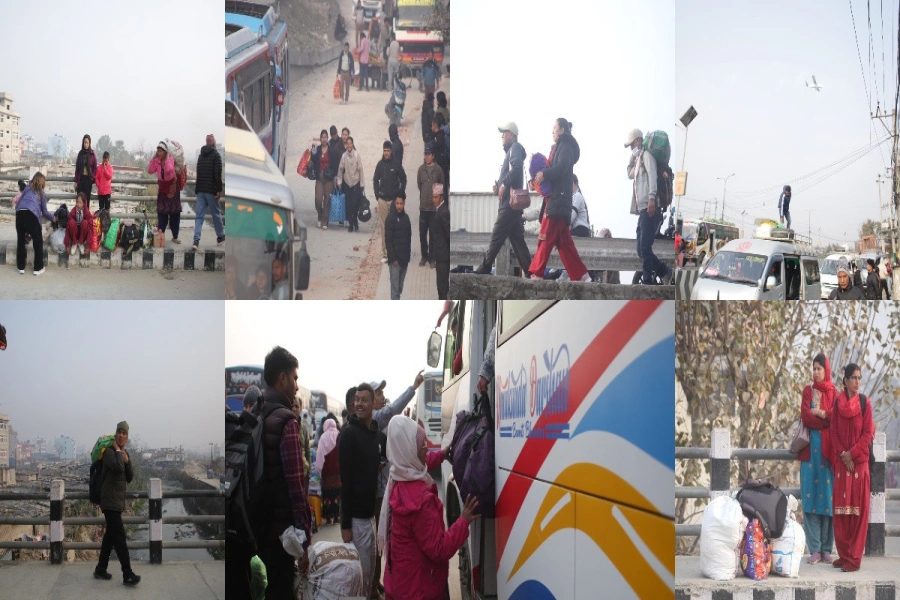Bülent Uyaniker, director of academic affairs and senior AI researcher at Fusemachines, an artificial intelligence talent and education solutions company, leads the AI curriculum research and development team at the company. The curriculum with an input of his experience of over 20 years as data scientist is geared towards enabling the students understand the real world problems and apply their knowledge to solve them. Bülent has developed data reduction, automation, and image processing algorithms at almost any wavelength for state-of-the-art imaging and signal processing instruments, radio telescopes, and x-ray and infrared satellites. Republica's Muna Sunuwar caught up with Bülent to talk about the status, materialization and scopes of artificial intelligence (AI) in Nepal. Excerpt:
What is the status of Nepal in terms of the use of artificial intelligence in different sectors?
I am impressed with what is happening in Nepal through Fusemachines. There is a huge explosion in sectors like market, finance, health and space but we are realizing that there is talent gap in the West including the US and Europe, and Nepal is not different. Fusemachines has come just in the right time and place, trying to fill the gap.
Mrs. Nepal contestants showed their talent in talent round

What is Fusemachines doing to promote AI in Nepal?
We are trying to come up with an education that will be competitive, comparable and maybe in some places better than other traditional AI training providers. Education in Fusemachines is not in an isolated environment because there are a lot of discussions taking place while learning. Education here is geared and tailored towards new market because the company has lots of contacts especially in New York, San Francisco and other places. The purpose of the trainings is to open new doors of opportunities in the new market.
In what fields can AI be materialized in the context of Nepal?
Machine learning-algorithms that are able to learn themselves extracting information from data, deep learning, natural language processing, and computer vision are the fundamentals of our education here. These are the most important things that we are going to implement here. Because wherever we go – be it health, industry, or finance or any other field – we see the importance of these components. Without these components education would be incomplete.
Nepal is new in the field of technology. How hard do you think is it to penetrate the population with the concept of AI?
If you want to learn something, you don't have to start and replicate what has happened in the history right from the beginning. You don't have to make discoveries but can actually benefit from the previous experiences of other countries, culture, and institutions. We need to understand the problems and AI is a tool that can solve our problems. And once we can convey this information to the public, they will accept and embrace this new idea easily.
Some people consider AI a threat to humankind. Do you agree or disagree with that thought?
The biggest threat to humanity is us and not AI. The fear from AI is needless because we are providing the intelligence part of AI. When we talk about AI, there are some misconceptions as the name contains intelligence. But AI – the machine intelligence – is not the same as human intelligence; the reason being that machines are fast and can find patterns that we cannot. What they lack is 'self awareness'. We will be at a higher level and we don't need to fear about it.
We have had fears and misconceptions regarding every new technology, and it is just the same thing happening again. We simply need to realize how those things are making our lives easier. Then we can have greater acceptance to those things.
How do you think will AI contributes to the transformation of the world?
Approximately 60% of the workforce will be dependent on AI in the next 10 years. So 60% of us will somehow be related with AI: working on topics that require AI or will be implementing AI or will become users of AI. It is going to drastically change the world.







































